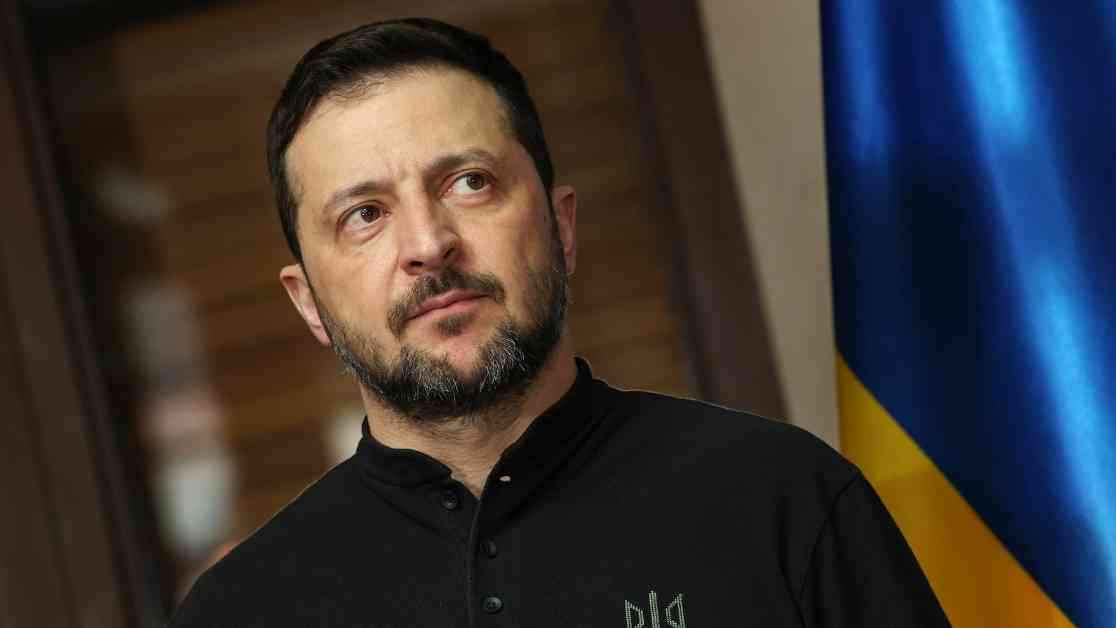Volodymyr Zelenskyy, the President of Ukraine, made an urgent plea to international allies to increase pressure on Moscow following a significant missile and drone strike by Russia, which took place shortly after historic talks between the U.S. and Russia in Saudi Arabia. The discussions, which Ukraine was notably excluded from, were hailed as a positive step towards resolving Russia’s ongoing invasion of Ukraine, according to a statement from the State Department.
Shortly after the talks ended with a commitment to further dialogue, Russia launched a devastating attack, with Ukraine’s air force reporting a barrage of 167 drones and two Iskander ballistic missiles. Of these, 106 drones were intercepted, but the remaining 56 caused significant damage, including outages in electricity, heating, and water services in Odesa.
Mayor Gennadiy Trukhanov of Odesa described the strike as targeting a densely populated area of the city, highlighting the grave impact on civilians. Zelenskyy, in a social media post, condemned the attack on civilian energy facilities, reiterating that the Russian army has persistently used missiles and drones against non-military targets for nearly three years.
The president emphasized the lack of trustworthiness of Russian representatives, citing their false claims of not targeting Ukraine’s energy sector while launching attacks on electrical transformers in the midst of winter. Zelenskyy’s message was clear: Russia cannot be trusted and must face international pressure to cease its aggressive actions.
Exclusion from Talks Raises Concerns
Ukraine’s exclusion from the Saudi talks has stirred unease among Ukraine and its European allies, as Trump, speaking from his Mar-a-Lago resort in Florida, showed little remorse over the situation. Trump’s remarks insinuated that Ukraine could have prevented the conflict by negotiating with Moscow, despite the fact that Russia initiated the invasion in 2022 after years of aggression in Crimea and Ukraine’s Donbas region.
The former president’s assertions that Ukraine should hold new elections and his misleading claims about Zelenskyy’s approval rating added to the tensions. However, recent polls suggest that the Ukrainian president still enjoys the trust of a majority of his citizens, despite a slight decline in popularity over time.
Uncertainty Surrounds Peace Talks
In the aftermath of the U.S.-Russia talks in Riyadh, both countries agreed to appoint special representatives to continue peace negotiations, with Lavrov, Russia’s Foreign Minister, expressing optimism about the potential for progress. Meanwhile, Putin’s aide mentioned that Trump’s envoy, Keith Kellogg, would lead negotiations with Ukraine and European nations to seek a resolution to the conflict.
Kellogg’s arrival in Kyiv signaled a new phase in diplomatic efforts, with the goal of listening to Ukrainian leaders and reporting back to Trump. The envoy emphasized the urgency of ending the war to alleviate the suffering of civilians caught in the conflict, echoing Trump’s sentiments that the conflict would have been averted if he had been in power earlier.
As the situation continues to evolve, the international community remains on edge, waiting to see how these developments will shape the future of the conflict in Ukraine. The importance of building trust and fostering genuine dialogue between all parties involved is more crucial than ever in achieving a lasting solution to the crisis.


